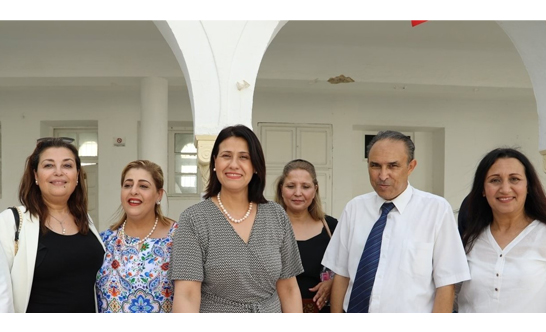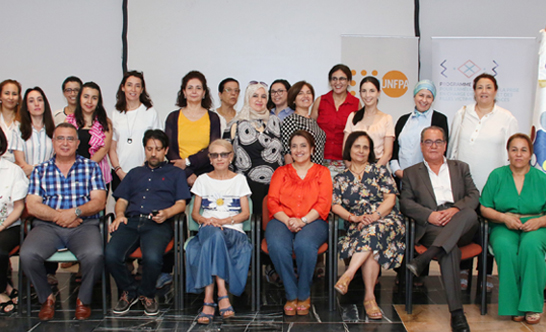Gender
UNFPA Tunisia support to continuity of essential services for women victims of violence during and after COVID-19

Hammam-Lif containment center for women and girls victims of violence © Ministry of Women, Families, Children and Seniors
UNFPA Tunisia CO implemented several support actions during COVID-19 crisis. Starting with distribution of personnel protective equipment to shelters hosting survivors of gender based violence then the development and broadcasting of a video to raise awareness on the importance of continuity of essential services for women victims of violence (WVV) during confinement. This video highlighted the availability of special units of police and national guard’s services and the availability of hotlines to counter the impact of social media campaigns encouraging violence against women. In addition to that, UNFPA Tunisia CO supported the creation of a quarantine shelter for WVV, where they could spend 14 days before being transferred to other regular shelters. One of the WVV who was hosted at this quarantine center succeeded to complete high school graduation with honors at the end of scholar year. For the longer-term, UNFPA Tunisia will continue providing support to vulnerable women and victims of violence, deeply impacted by the socio-economic consequences of the outbreak, through civil society network and will support the opening of a new shelter of WVV in Tunis.
Gender
Training of trainers (ToT) on care of victims of sexual violence

Group photo of ToT training. © UNFPA Tunisia.
On June 29th 2020, the National Office of Family and Population Affairs (ONFP) organized a training of trainers (ToT) on care of victims of sexual violence with the support of UNFPA Tunisia CO. This ToT is one of the steps in implementation of the five years’ national plan of the training plan of the ONFP. The ToT allowed the 20 selected doctors to deepen their knowledge and skills in terms of training methodology as well as on clinical management of survivors of sexual violence including in the context of migration. This ToT also covered the collection and preservation of evidence of sexual violence as well as related legal aspects. Next step will consist in deploying the training to first line doctors and gynecologists at national level.
